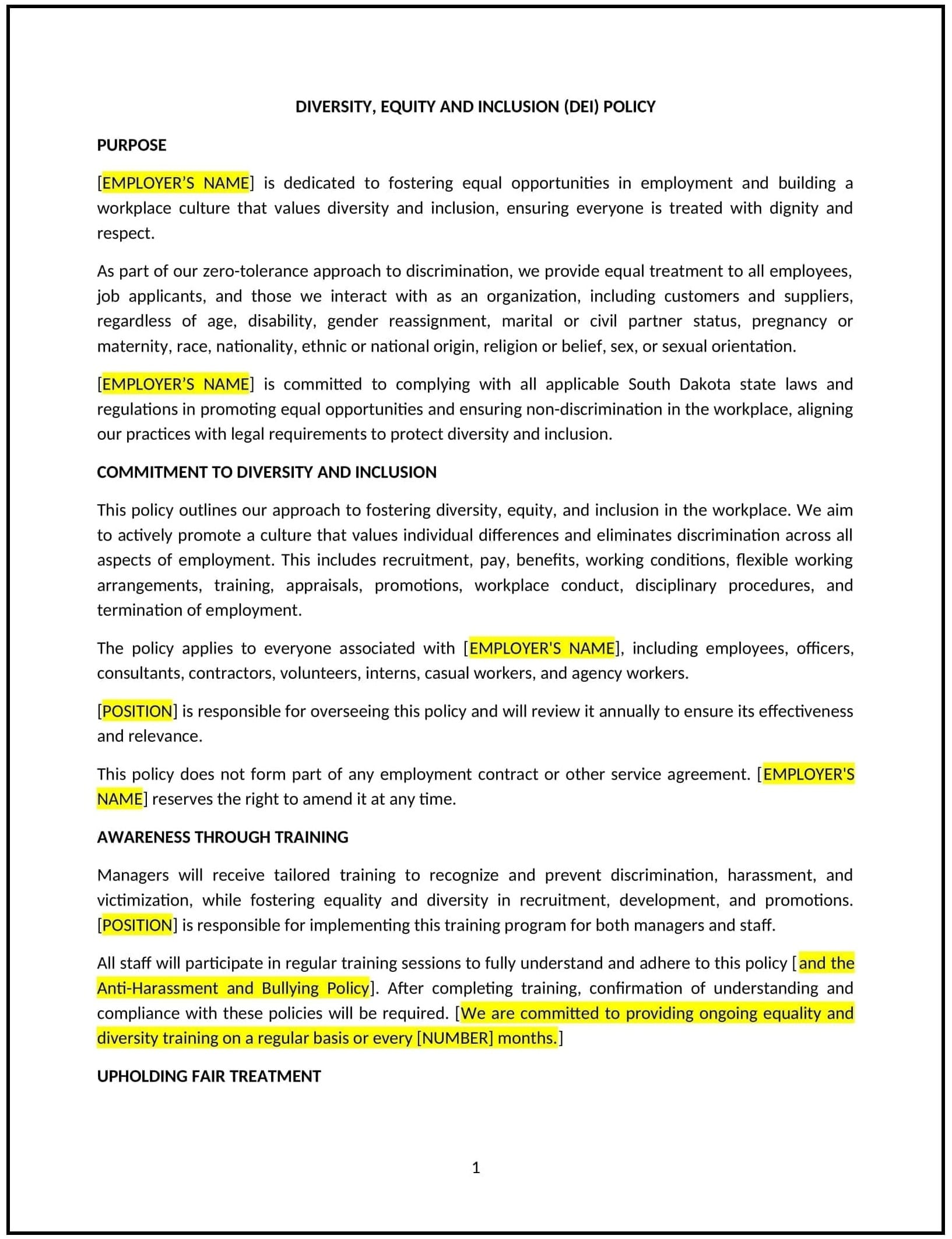Diversity, equity, and inclusion (DEI) policy (South Dakota): Free template
Got contracts to review? While you're here for policies, let Cobrief make contract review effortless—start your free review now.

Diversity, equity, and inclusion (DEI) policy (South Dakota)
This diversity, equity, and inclusion (DEI) policy is designed to help South Dakota businesses create a workplace that values and respects differences. It outlines procedures for promoting diversity, ensuring equity, and fostering inclusion.
By adopting this policy, businesses can enhance employee engagement, reduce biases, and align with general best practices for workplace diversity.
unknown nodeHow to use this diversity, equity, and inclusion (DEI) policy (South Dakota)
- Define DEI: Explain what diversity, equity, and inclusion mean within the workplace, such as respecting differences and providing equal opportunities.
- Establish initiatives: Provide steps for promoting DEI, such as training programs, recruitment practices, and employee resource groups.
- Address biases: Outline procedures for identifying and addressing biases in hiring, promotions, and workplace interactions.
- Train employees: Educate employees on following the policy and fostering an inclusive work environment.
- Review and update: Assess the policy annually to ensure it aligns with evolving business needs and DEI standards.
Benefits of using this diversity, equity, and inclusion (DEI) policy (South Dakota)
This policy offers several advantages for South Dakota businesses:
- Enhances employee engagement: Encourages employees to feel valued and respected.
- Reduces biases: Helps create a fair and inclusive work environment for all employees.
- Promotes innovation: Brings diverse perspectives and ideas to the workplace.
- Builds trust: Demonstrates a commitment to fairness and inclusivity.
- Supports reputation: Positions the business as a progressive and caring employer in the community.
Tips for using this diversity, equity, and inclusion (DEI) policy (South Dakota)
- Communicate the policy: Share the policy with employees and include it in the employee handbook.
- Provide training: Educate employees on following the policy and fostering an inclusive work environment.
- Monitor compliance: Regularly review DEI initiatives to ensure adherence to the policy.
- Address issues promptly: Take corrective action if biases or exclusionary behavior are identified.
- Update regularly: Assess the policy annually to ensure it aligns with evolving business needs and DEI standards.